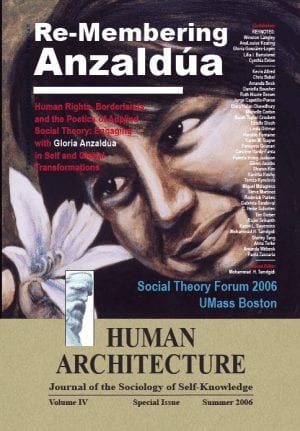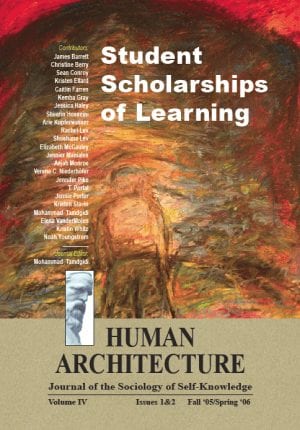Journal Article — Translating Borders, Performing Trans-nationalism — by Paola Zaccaria
$15.00
This essay follows a caminho which opens on a critical perspective showing that Anzaldúa’s theory is not binary or dialectic, but relational: the great divide between the dualistic thinking and Anzaldúa’s project-process is the conocimiento that the counterstance “locks one into a duel of oppressor and oppressed,” whereas confrontation, translation and comparativism introduce difference in monologism.
Description
Abstract
“Translating Borders, Performing Trans-nationalism” is authored by Paola Zaccaria.
A constitutive theme of semiotics, comparative literatures, applied linguistics and social theory, translation, is read here as a practice of transformation and crossing, trans-action and transit, composition and recomposition between texts and cultures.
Inside and underneath the practices of translation lies the logics of encounter which is strictly linked to the conocimiento that global trasformation can take place only if there is self transformation, and vice-versa. The translation border is a space of transformation, and la frontera a paradigm for transition and change: a body, a tongue, a culture opens to elsewhere, entering a contact zone, a transitional space of incessant gangways between cultures, between societary and individual histories, where words and worlds interact, and one’s sense of identity trasmutes and moves on.
The interracial, intercultural self-infra-intra-translation enacted by Gloria Anzaldúa in Borderlands/ La Frontera (and Alfred Arteaga in Cantos) creates figurations of metamorphoses where mestizo thinking flourishes to become transnational, planetary and culturally dense-a mestizajed poetics, politics, thinking.
The essay follows a caminho which opens on a critical perspective showing that Anzaldúa’s theory is not binary or dialectic, but relational: the great divide between the dualistic thinking and Anzaldúa’s project-process is the conocimiento that the counterstance “locks one into a duel of oppressor and oppressed,” whereas confrontation, translation and comparativism introduce difference in monologism.
Recommended Citation
Zaccaria, Paola. 2006. “Translating Borders, Performing Trans-nationalism.” Pp. 57-70 in Re-Membering Anzaldúa: Human Rights, Borderlands, and the Poetics of Applied Social Theory: Engaging with Gloria Anzaldua in Self and Global Transformations (Human Architecture: Journal of the Sociology of Self-Knowledge: Volume IV, Special Issue, 2006.) Belmont, MA: Okcir Press (an imprint of Ahead Publishing House).
The various editions of Re-Membering Anzaldúa: Human Rights, Borderlands, and the Poetics of Applied Social Theory: Engaging with Gloria Anzaldua in Self and Global Transformations (proceedings of the Third Annual Social Theory Forum at UMass Boston) can be ordered from the Okcir Store and are also available for ordering from all major online bookstores worldwide (such as Amazon, Barnes&Noble, and others).




